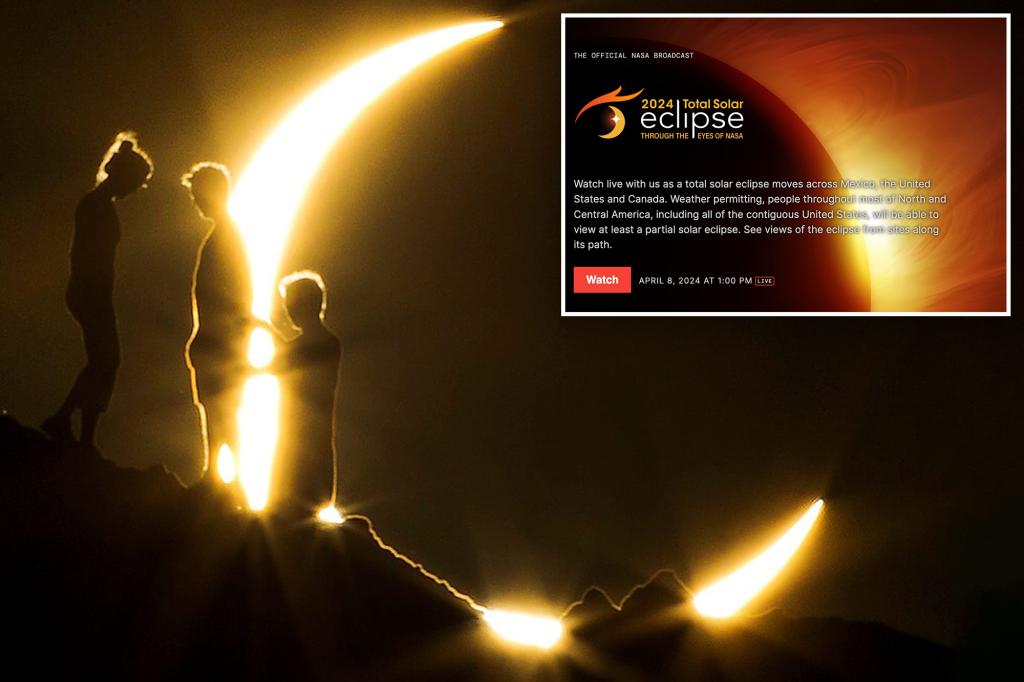On the day of the total solar eclipse, those who are unable to view it in person can still watch the event online. The eclipse will be visible along a narrow path from Mexico’s Pacific coast to eastern Canada, where tens of millions of people can witness day turning into twilight as the moon blocks out the sun. Eclipse glasses are necessary to prevent eye damage, except during the few minutes of totality when it is safe to view the eclipse without protection.
For those who are unable to view the eclipse due to clouds or travel limitations, there are several online alternatives available. NASA will be live streaming the event from various locations along the totality path, with telescope views of the sun and appearances by scientists and astronauts. Small rockets will blast off from Wallops Island, Virginia, carrying science instruments into the ionosphere. The Associated Press will also be hosting a live show from the path of totality, featuring coverage of watch parties and festivities along with interviews with organizers and scientists.
The Exploratorium museum will be showcasing live telescope images of the sun from Junction, Texas, and Torreón, Mexico. Researchers and students from the University of Maine will be launching high-altitude balloons for an experiment that will be live-streamed from the stratosphere. Time and Date will provide views of the sun from various telescope feeds, while Slooh will be broadcasting from Texas with a network of partner telescopes along the path of totality.
Overall, online viewers will have multiple options to watch the total solar eclipse if they are unable to view it in person. From NASA’s live streaming of the event with telescope views of the sun to live coverage from different cities along the totality path, there will be plenty of opportunities to experience this rare celestial event. Additionally, viewers can watch live telescope images of the sun from various locations and experiments conducted by researchers and students, providing a comprehensive online viewing experience for those who are unable to witness the eclipse firsthand.















